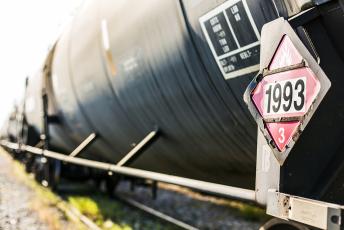The unprecedented disaster wrought by Hurricane Harvey has the safety of friends, family, colleagues and communities along the Gulf Coast weighing heavy on our minds and hearts. As the crisis continues to unfold over this Labor Day Weekend, members of the AFPM community — including highly trained workers at energy and manufacturing facilities around Houston are working tirelessly to ensure the health and safety of those in their communities and the security of the energy infrastructure on which much of our country depends—all while also dealing with their own losses from the storm.
In just five days, Harvey unleashed one trillion gallons of water on the Houston area — equivalent to the amount rushing over Niagara Falls in a two-week period. Places like Baytown, Beaumont, Corpus Christi, and Three Rivers — communities our industry has called home for decades — are literally underwater.
Our members have taken immediate action at their facilities, many standing up advanced crisis centers to support employees and help safely meet the needs of communities struggling to navigate the impacts of this once-in-a-thousand-years storm. Beyond donating millions of dollars to the Red Cross and other humanitarian organizations, our members are responding with aid in countless ways, including arranging short- and long-term housing for employees, underwriting medical expenses, deploying company maintenance crews to employee homes to tackle clean-up and repairs, contributing supplies, and bringing convoys into affected areas. Employees are opening their homes to provide shelter for one another and their families, and colleague-to-colleague financial support is pouring into foundations established to help those impacted by the storm.
Every action our members have taken around Harvey to date has been in the interest of safety and protecting people and the environment. In Houston, preparedness plans developed well in advance and in coordination with emergency responders and government agencies enabled our industries to mobilize immediately. Ride-out crews were activated, thousands of workers systematically evacuated, and many Gulf Coast facilities were shut down guided by procedures designed to minimize environmental impacts. We are coordinating directly with other critical players in the nation’s complex fuel infrastructure system — including ports, terminals and pipelines — to allow us to bring operations back online as soon as possible, once the integrity of our facilities has been thoroughly assessed.
Through the accurate identification and mitigation of potential hazards, our members strengthen their systems and facilities, and develop thorough protocols that can be activated when under the threat of severe weather. Following Hurricanes Katrina and Rita, some of our members identified opportunities to add redundant power supplies and raise electrical and other equipment, including pumps and various valves, above the levels anticipated in the event of flooding.
It is a shared culture of continuous improvement that has enabled fuel and petrochemical manufacturers to continuously update risk assessments to incorporate lessons from weather events around the world. Our experts from across the industry will continue applying these learnings as we support the men and women on the ground who are working tirelessly to ensure stability and protect our country and their own families.
These individuals — marked in their dedication, vigilance and courage — embody the spirit of the American Worker that we celebrate each Labor Day and on which we as a nation rely, and thrive, each and every day.
We thank our employees, our government partners and emergency responders for their dedicated service. And we stand together with the ever-resilient communities of the Gulf Coast. Our prayers are with the thousands of people impacted by the storm.


